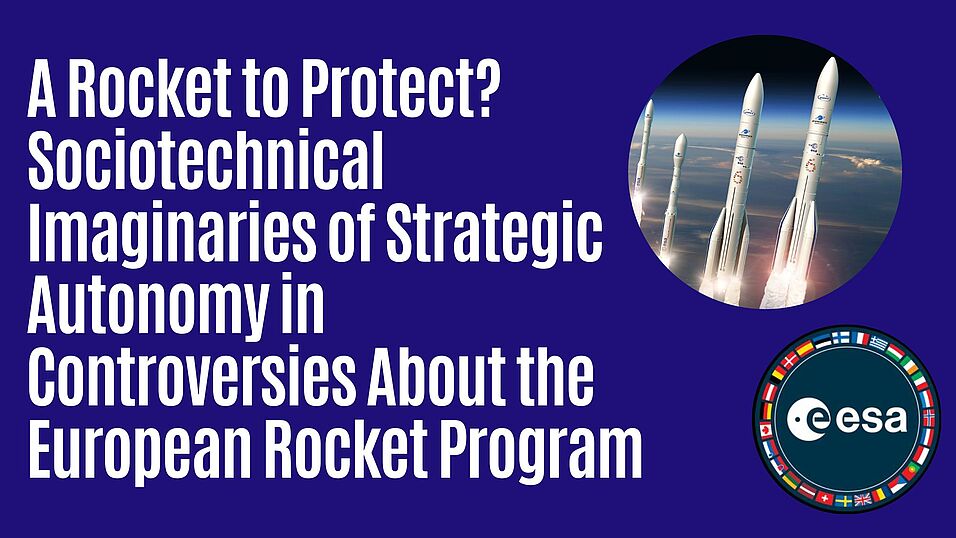Abstract
When we think about European integration practices, we rarely consider how they may extend to outer space. Yet, a new global space race is in full swing, in which commercial and government actors worldwide are putting forward bold visions of human futures in outer space. Europe is at the cusp of deciding which role to play in this new Space Age, with the European rocket program Ariane being at the centre of many debates about the future of Europe in space. Controversies about the future of the jointly built and heavily subsidised rocket entangle questions of innovation, in/security, and geopolitical power constellations. This paper traces which kind of space futures are projected onto and realised through Ariane, how the current geopolitical dynamics in the accelerating New Space Age are co-constitutive of how European strategic autonomy is envisioned, and how these futures relate to ideals and tensions of European integration. Mobilising work in science and technology studies (STS) on sociotechnical imaginaries and insights from the emerging social studies of outer space (SSOS), the paper offers unique and timely insights into how future visions of space shape forms of European collaboration in the present and how, conversely, geopolitical relations on Earth shape how and by whom these futures are imagined. The empirical part builds on two years of fieldwork in the European space sector, including interviews and participant observation. It presents three vignettes that highlight different aspects of strategic autonomy. The vignettes concern (1) the broader geopolitical dimension of the European rocket programme, (2) the issue of dual-use and the blurring of boundaries between civilian and military innovation, and (3) European technopolitical integration and the question of power in changing actor configurations. It is argued that the current emphasis on strategic autonomy in the European context represents a significant transformation of the role of space for European (security) integration and direct response to both the commercialisation and the securitisation of space. Moreover, it is shown how the securitisation of (access to) outer space has become a vital force to spur innovation – channelling resources, marshalling funds, and creating political legitimacy, entangling political economies of innovation with geopolitical transformations.
Read the full article here.

